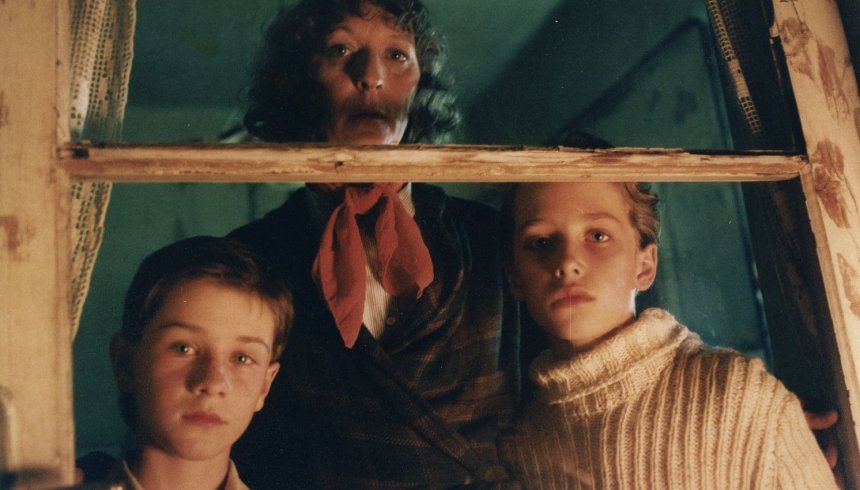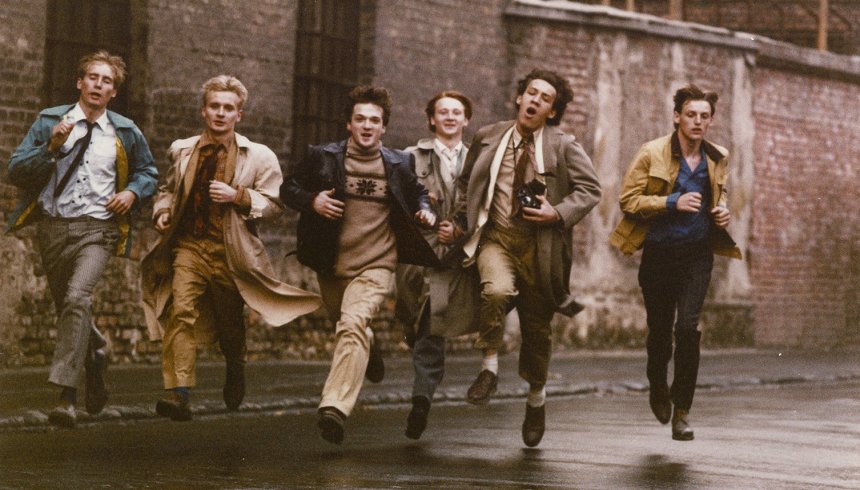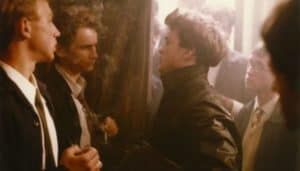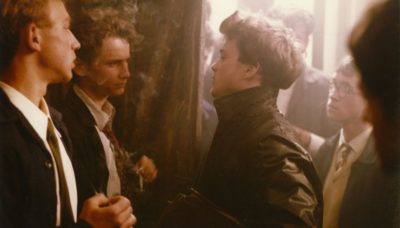Time Stands Still in cinema
Péter Gothar is a director whose debut feature, A Priceless Day (Ajandek ez A Nap 1979), was a critical success. The story about a couple trying to get an apartment in Budapest in the late seventies struck a nerve with the audience as well. With cinematography by Lajos Koltai, the film won the first film award at the Venice Film Festival in 1980. still, the cinematic leap that would come two years later was entirely unexpected. Time Stands Still (Megáll as Idö 1982) is routinely listed as one of the best Hungarian films ever made. One such example is the New Budapest 12 list from 2000 that had Jancsó’s The Round-Up as number one and Gothar’s work as number six.

Time Stands Still deals with the aftermath of the 1956 uprising. After a brief prologue set then, the rest of the film takes place in the sixties. We follow Dini and his older brother Gábor, whose father left Hungary and left their mother as their sole caretaker. Then, the film jumps to 1963, where we follow the boys and their classmates growing up under the influence of American pop culture while dealing with the political repercussions of the previous events. Merely entering the university they want requires political manoeuvring. Sometimes the teenagers are very aware of what they are doing. At other times, their behaviour causes unintended political reactions, such as when the headmaster gives a speech commemorating the war.
Time Stands Still in politics
The script was co-written by Gothar and Géza Bereményi. A writer who would later start directing, most notably in the excellent Eldorádó from 1988. He had already worked with Gothar in a TV film called Imre in 1979. The script for Time Stands Still is wonderfully balanced between the political and personal and how they are intertwined. The story is constantly compelling, and the film is littered with great dialogue. One of the best scenes occurs when Dini’s mother pays a visit to one of his teachers, but there are plentiful brilliant scenes like that in the film. The direction of the young thespians is also perfect, and all of the performances ring true.

Another major factor in the film’s success is the magnificent cinematography by Lajos Koltai. The film revels in the colour scheme with the mint green walls and other objects that perfectly conjure the era. Slow-motion, wide-angle shots, and other means are handled expertly as well. The film is a marvel to behold, not least since it was restored. Unfortunately, the DVD release was not anamorphic for some reason. The use of music is also perfectly balanced. Sure, there are many songs from the era on the soundtrack, but they generally serve a purpose and are not there merely to save a scene that wouldn’t be as compelling without it. A method that is employed far too often nowadays.
Other films by Péter Gothar
Gothar would make other good films such as Idö van (1986) and, most notably, The Outpost (A Részleg 1995) in 1995. The latter is a film that I find impressive. Most of his films are actually worth seeing. Nevertheless, Time Stands Still remains the film he will be famous for. It was also awarded abroad. A youth prize at the Cannes Film Festival and Best Foreign Language Film by the New York Critics. It is undoubtedly a film that has withstood the test of time and is both profound and entertaining. After watching it, you will never listen to Paul Anka’s You Are My Destiny, in the same way again.
András Vagvölgys’s Kolorádó Kid begins during the same era and is also worth watching, even though the styles are vastly different.
Time Stands Still is available here.
Time Stands Still by Péter Gothar - The Disapproving Swede

Director: Péter Gothar
4.75
Pros
- Great writing
- Brilliant cinematography
- Acting

